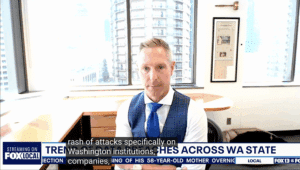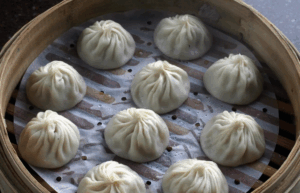In the spring of 2025, Governor Bob Ferguson signed hundreds of bills into law. Many of these bills directly affect workers across Washington, concerning licensing...
Read MoreLEARN FROM OUR LEGAL EXPERTS
In the spring of 2025, Governor Bob Ferguson signed hundreds of bills into law. Many of these bills directly affect workers across Washington, concerning licensing...
Read More
FOX 13 Seattle Timothy Emery featured on Fox 13 Seattle: Clark County is facing a class-action lawsuit over a 2023 data breach, including names, social

By Jason Sutich, mynorthwest.com Teamsters Local 174 has filed multiple complaints with the Washington State Department of Labor and Industries (L&I), alleging that Costco has blatantly

By Tan Vinh, The Seattle Times Din Tai Fung, the popular soup dumpling chain, has agreed to pay $567,361 in restitution to 1,245 current and former
CONTACT US TODAY
Fighting for You with Expertise
Contact Us for a FREE Case Review with an Experienced Intake Specialist
JUMP TO A CATEGORY PAGE
Many workers are underpaid or denied benefits without knowing. Don’t leave money on the table — check your L&I benefits. What Are L&I Benefits? If you’ve...
Read MoreNick Morgan, nbcrightnow.com The Washington State Department of Labor & Industries says it could take months to properly investigate the Tuesday accident in the 1900 block...
Read MoreIsobel Charle, Producer, publicnewsservice.org Workers’ rights advocates are celebrating a new law mandating “good faith and fair dealing” in Washington’s workers’ compensation system. They said the law...
Read MoreThe Washington State Department of Labor and Industries accepts around 90,000 workers’ compensation claims a year. While you should always report an industrial injury to...
Read MoreThis year, state Senator Manka Dhingra, a Democrat representing Redmond, introduced Senate Bill 5217. This bill would repeal a current prohibition that prevents Labor and...
Read MoreCan You Sue Your Employer In Washington State? It’s hard to know what your options are when you have a work-related injury. Although you can’t...
Read MoreBy Jason Sutich, mynorthwest.com Teamsters Local 174 has filed multiple complaints with the Washington State Department of Labor and Industries (L&I), alleging that Costco has blatantly...
Read MoreBy Tan Vinh, The Seattle Times Din Tai Fung, the popular soup dumpling chain, has agreed to pay $567,361 in restitution to 1,245 current and former...
Read MoreFor the fifth time in federal history, America will celebrate Juneteenth on Thursday, June 19, 2025. The first Juneteenth celebration took place 159 years ago,...
Read MoreFOX 13 Seattle Timothy Emery featured on Fox 13 Seattle: Clark County is facing a class-action lawsuit over a 2023 data breach, including names, social...
Read MoreThe News TribuneShae JohnsonUpdated March 6, 2025 The Pierce College District will pay $1.2 million to settle a class-action lawsuit that arose from a cyberattack...
Read MoreOn February 6, 2025, FinTech customers have motioned to appoint Emery | Reddy Attorney Timothy W. Emery as one of the attorneys who will represent...
Read MoreFor the fifth time in federal history, America will celebrate Juneteenth on Thursday, June 19, 2025. The first Juneteenth celebration took place 159 years ago,...
Read MoreWhether small or serious, workplace accidents happen all the time. In Washington state, you are covered for any injuries you may suffer while on the...
Read MoreSafeway Distribution Center in Auburn Fined for Violating New Law Auburn’s Safeway Distribution Center was fined over $11,000 by L&I for quota-related safety and workplace...
Read MoreUna clase propuesta de trabajadores de almacén y venta minorista de Amazon ha acusado a la empresa de obligarlos a firmar cláusulas de no competencia,...
Read MoreNuestra misión de ayudar y empoderar a los trabajadores se extiende más allá de nuestra comunidad y hacia la próxima generación, y estamos orgullosos de...
Read More¡Síguenos en redes sociales para tener la oportunidad de ganar entradas para los Seahawks! Cómo participar: Síguenos en Instagram, Facebook, LinkedIn, TikTok, and/or YouTube 2....
Read MoreARE YOU INJURED?
Contact Us Today
This site is protected by reCAPTCHA and the Google Privacy Policy and Terms of Service apply.
© 2024 Emery | Reddy, PLLC
We will be closed:
We will reopen: